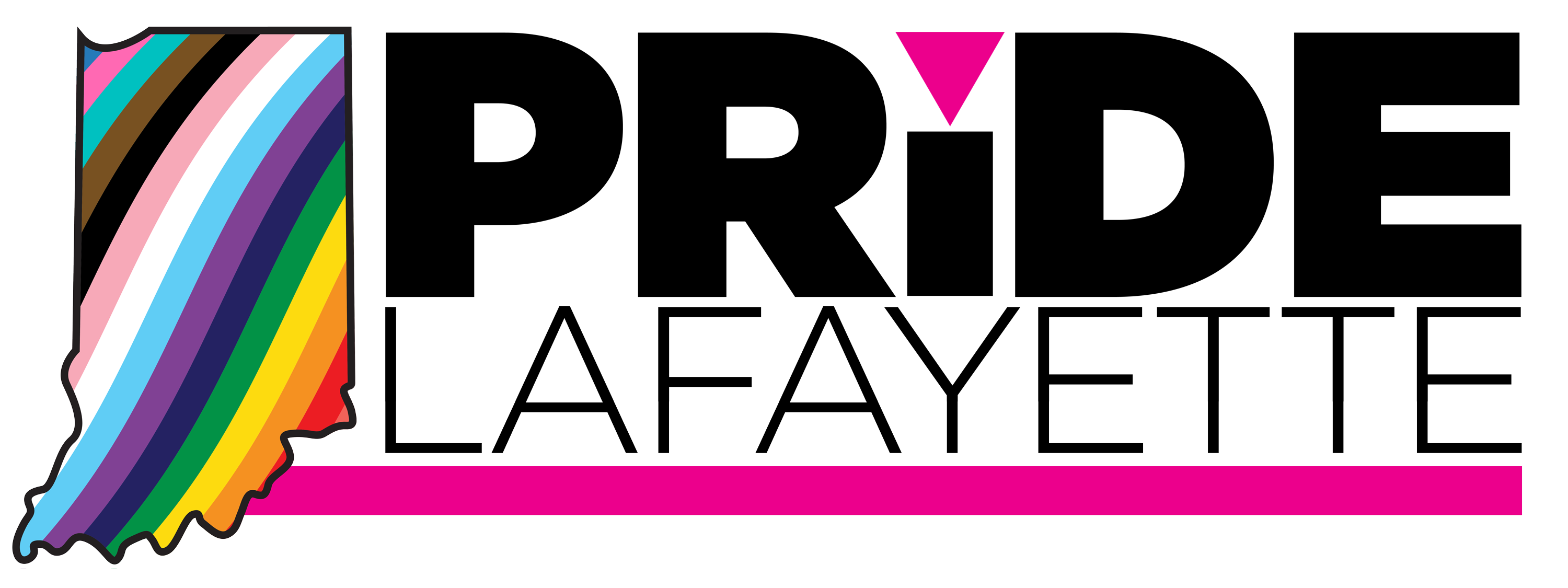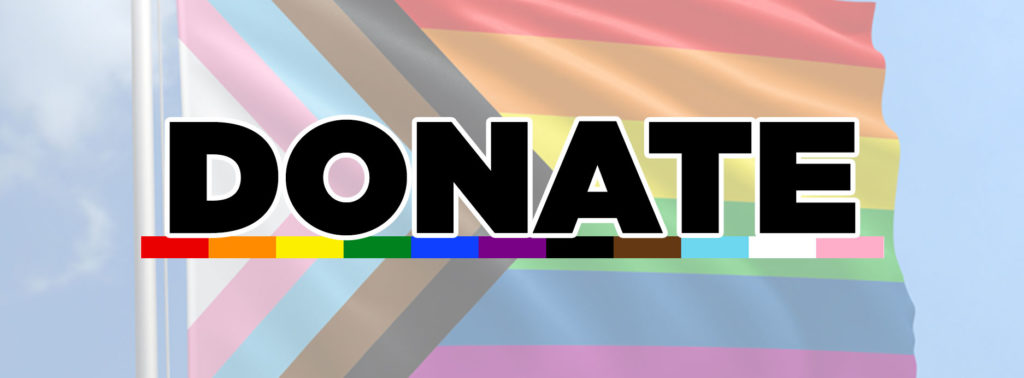What will you find on this page?
- What is Trans Lafayette?
- Who is welcome at Trans Lafayette meetings?
- When and where does Trans Lafayette meet?
- What does “safe space” mean at Trans Lafayette?
- Does Pride Lafayette Community center have an ADA complainant entrance?
- What if I am worried about being outed by coming to meetings at the Pride Lafayette Community Center?
- Does Trans Lafayette have a Facebook page? How do I contact whoever runs Trans Lafayette?
- How can I support Trans Lafayette?
- What resources does Trans Lafayette offer?
What is Trans Lafayette?
Trans Lafayette is a support and anti-oppression group for all transgender and gender diverse people, those living with differences of sexual development (DSD), those who identify as intersex, and their allies. We also welcome partners, spouses, significant others, allies, family, and friends to meeting. If you are a student or health care provider interested in learning more about trans and intersex communities, please email us at translafayette@gmail.com to submit a request. The group is meant to be a safe space for self-expression and exploration of identities! Our motto is “All states of mind and body welcome.”
Who is welcome at Trans Lafayette meetings?
Trans Lafayette welcomes everyone from the LGBTQ+ community, the same gender loving (SGL) community, queer allies, straight, heterosexual, and cisgender allies, domestic and international gender diverse individuals, and anyone else who is interested in discussing and exploring sex, gender identity and expression, sexual identities and affectional identites. Trans Lafayette is a safe and welcoming environment for anyone regardless of sex, gender identity, gender expression, sexual/affectional identities, ability, race, ethnicity, color, national origin, legal status (including undocumented status), age, religious or spiritual beliefs, marital or relationship status or structure, familial or parental status, pregnancy, veteran status, socioeconomic status, or genetic or other biological status.
This group is primarily here to support trans and intersex people. Therefore, if you are interested in learning more about the trans community for a class or as a service/health care provider, we ask that you email us in advance to request permission to attend a meeting.
When and where does Trans Lafayette meet?
We have two meetings per month. Some of our meetings are discussion based and focused on topics related to gender identity and expression, social issues that affect trans and intersex communities, and information about resources. Other meetings are more focused on education and skill building, and others are socials where community members can enjoy company in a safe space. Meetings/socials are typically held at the Pride Lafayette Community Center, 640 Main St., Lafayette, on the 1st and 3rd Sunday of each month from 4:30PM to 6:00PM. For the most updated information, check out our Facebook: www.facebook.com/translafayette.
What does “safe space” mean at Trans Lafayette?
We use the phrase “safe space” to indicate that we are a group that embraces challenging conversations and strive to create an environment where people can bring their whole selves into the conversation. It means that if people say hurtful, offensive, or oppressive things, those individuals will be compassionately confronted and challenged, but that we believe as a group that everyone should be treated with compassion and respect. We recognize that even in trans and intersex communities, people come with internalized racism, sexism, trans/homo/bi phobias, ableism, and other unaware beliefs and practices, and we hope to support all attendees in their personal development. Holding a safe space does not mean that we allow racist, sexist, or other oppressive/hurtful statements to go unacknowledged or unchallenged, but instead that we can have these challenging conversations with emotion, compassion, and growth. As a non-clinical and peer-led support group, we realize that even our leadership will make mistakes by possibly saying uninformed or oppressive things and/or by not challenging any/all inappropriate comments. However, we do strive to create an environment where our leaders can also be openly challenged by attendees. We always appreciate feedback.
Does Pride Lafayette Community center have an ADA complainant entrance?
Unfortunately, no. However, the back door of Pride is much more accessible than the front door since there are no stairs. This entrance will be open the 10-15min before meetings begin and then it will remain locked during meetings. If know you will be a few minutes late to a meeting, you can email us at translafayette@gmail.com ahead of time so the door will be unlocked, or ring the doorbell button to request being let in or call the center’s phone: 765.423.7579.
What if I am worried about being outed by coming to meetings at the Pride Lafayette Community Center?
If you are concerned with being outed, we have a back entrance that is much less visible to the public. This entrance will be open the 10-15min before meetings begin and then it will remain locked during meetings. If know you will be a few minutes late to a meeting, you can email us at translafayette@gmail.com ahead of time so the door will be unlocked, or ring the doorbell button to request being let in or call the center’s phone: 765.423.7579.
Does Trans Lafayette have a Facebook page? How do I contact whoever runs Trans Lafayette?
Check out our Facebook page for the latest news and updates: www.facebook.com/translafayette. You can also contact Skye Brown, the Program Coordinator for Trans Lafayette, at translafayette@gmail.com.
How can I support Trans Lafayette?
We could always use support in terms of volunteers to help facilitate Trans Lafayette meetings, host Pride during open hours after Trans Lafayette meetings, table at the various state-wide Pride festivals, assist in organization and implementation of fundraising efforts, and offer donations directly. Because Trans Lafayette serves directly as a support group, but also strives to empower trans and intersex people through personal and professional development, our facilitation and hosting roles are generally reserved for trans and intersex people. However, we welcome cisgender and straight allies in supporting us in other ways. If you have any questions about the opportunities listed above or ideas for additional involvement, please don’t hesitate to contact us at translafayette@gmail.com.
What resources does Trans Lafayette offer?
These documents are provided as a convenience and for informational purposes only; inclusion in these documents does not constitute an endorsement or an approval by Pride Lafayette of any of the products, services or opinions of the corporation or organization or individual. Pride Lafayette bears no responsibility for the accuracy, legality or content of the external site or for that of subsequent links. Additionally, Pride does not maintain ownership of these documents. Please contact those listed in the documents for additional information.
“The Indiana Transgender Network aggregates resources available to transgender and gender diverse people living in Indiana. Our goal is to make it easier for people making a gender transition or trying to understand the subject of gender identity to find counselors, medical resources, legal information, support groups, advocacy organizations and other help on their journey.”
Legally Transitioning for Trans People in Indiana
This booklet offers information about transitioning in professional settings and gives step-by-step information about acquiring legal name and gender marker changes on various documents in Indiana.
Coming Out Safely and Socially Transitioning for Trans People
This booklet offers information about coming out as trans, explores what “passing” means, and lists resources for trans people dealing with issues of self-harm and/or unhealthy relationships.
Trans 101 for SOFFAs
This booklet introduces trans identities and experiences for significant others/partners, friends, family, and allies of trans people. It answers a lot of frequently asked questions as well as gives advice to parents, children, friends, and partners about how to support trans people.
Trans 201 for SOFFAs
This booklet builds on the Trans 101 for SOFFAs and provides more information about trans identities and experiences for significant others/partners, friends, family, and allies of trans people. It covers respectful terminology, answers some more frequently asked questions, provides a list of inappropriate questions, and gives some ideas about how to be a strong ally to trans people.

